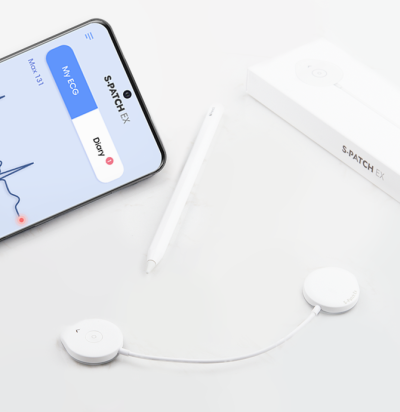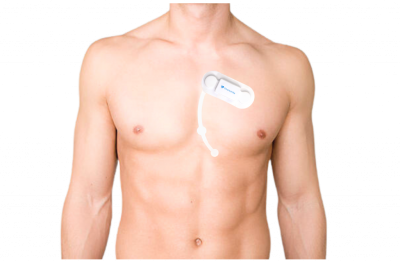The FDA has given separate green lights to two wearable monitors that aim to improve the accuracy of continuous electrocardiograms.
The patches’ makers—South Korea’s Wellysis, which spun out of Samsung in 2019, and Switzerland-based SmartCardia—each announced their regulatory wins this week.
Their devices are both designed to give doctors a comprehensive view of patients’ cardiac activity over several days, helping them pinpoint potential signs of atrial fibrillation and other arrhythmias among other heart conditions.

First to share the news of its FDA nod was Wellysis, whose S-Patch Ex is already being used in more than a dozen countries around the world—including several European countries, thanks to the CE mark clearance it received in 2021.
The S-Patch Ex is a lightweight, waterproof device that’s powered by the Bio Processor chip that Samsung developed specifically for use in its wearable health trackers. It’s designed to be worn on a user’s chest for up to 72 hours, during which time it transmits the collected electrical data from the heart to an app installed on a smartphone, smartwatch or tablet—where users can also track their testing progress and view real-time results, monitor the device’s status and input information about symptoms they experience.
Meanwhile, the readings are also transferred to a cloud-based web portal, where doctors can view both the raw ECG, heart rate and symptom data and the diagnostic reports generated by Wellysis’ artificial intelligence technology to sum up any significant findings from the wear period.
Wellysis is planning to launch S-Patch Ex in the U.S. this month via partnerships with service and platform providers, it said in the Wednesday announcement.

SmartCardia reported its own FDA clearance on Friday. Like the S-Patch Ex, SmartCardia’s 7L patch and accompanying cloud-based platform are already widely used overseas, with a particular focus in Europe and India, per the company.
Unlike its single-lead competitor, however, the 7L device—as the name hints—boasts seven leads, which SmartCardia says allow the system to capture a fuller picture of an individual’s cardiac activity.
The patch is meant to be worn for up to two weeks. Throughout that time, doctors can monitor their patients’ heart health in real time, and the platform will also send out visual and auditory alerts if it detects any sign of an abnormal event.
“100% of the ECG data, not just events, is transmitted in real-time, and the automated analysis is performed throughout the entire signal,” Francisco Rincon, SmartCardia’s chief technology officer, said in the release. “While full-disclosure analysis allows for highly accurate arrhythmia detection, easy navigation on the cloud platform allows the clinician to quickly view and analyze ECG at any point in time.”